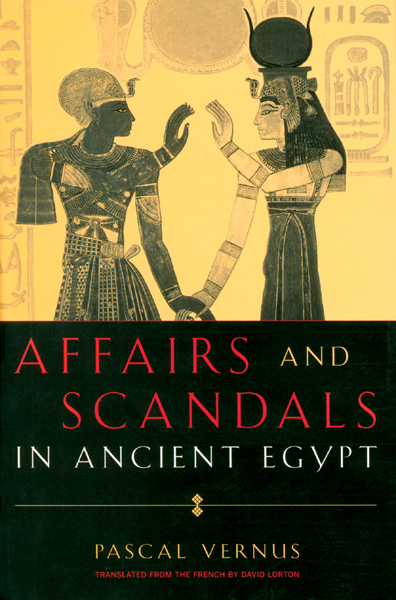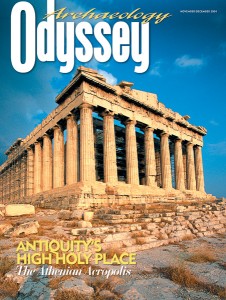
Affairs and Scandals in Ancient Egypt
Pascal Vernus (trans. from the French by David Lorton) (Ithaca, NY: Cornell Univ. Press, 2003) 211 pp., $29.95 (cloth)
Reports of scandals are always titillating. Nonetheless, it often comes as a shock to realize that the peccadilloes of the past have a distinctly modern ring. Even dynastic Egypt had its “Harper Valley, P.T.A.,” as well its “Watergate” and “Enron” outrages.
Ancient Egyptian law consisted of a highly effective but heterogeneous set of regulations. Royal edicts were combined with, but rarely superseded, the laws of the gods and local customs. Courts at all levels functioned in accordance with established procedures, and litigants were able to appeal their cases in higher courts. The ideology of ma’at (order, justice, fair-dealing) was supposed to characterize the activity of administrators, whether civil or juridical. The policing of the realm involved several state-supported bodies, but citizens were also obliged to inform on each other. As one common laborer admitted: “Pharaoh l.p.h., my good lord, has administered an oath to the effect that I shall not hear anything, nor witness a theft ... and conceal it.”
Already a library member? Log in here.
Institution user? Log in with your IP address.

